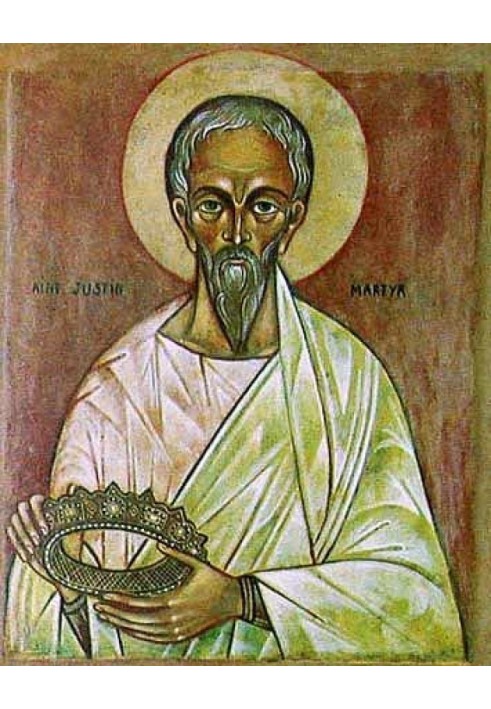Apology II presented in favor of Christians to the Roman Senate
 Instant download
Instant download
after payment (24/7)
 Wide range of formats
Wide range of formats
(for all gadgets)
 Full book
Full book
(including for Apple and Android)
Consists of 15 chapters, complements the first. Written in 161 on the occasion of one incident: in Rome, under the prefect Urbic, three Christians were captured and beheaded. The situation of Christians, who could all become victims of any arbitrariness, prompted St. Justin to write an apology. The work gives the impression of some kind of incompleteness: it is quite possible that Justin did not have time to complete the work, having himself become a victim of persecution. Compared to the “First Apologia”, some new themes are outlined here: for example, that the ultimate cause of persecution of Christians is the hatred of demons to them. The idea is also expressed quite clearly that demons and evil people who fall under their spell will face God's punishment. This work ends with an expression of hope: the pagans, having learned the truth about Christians, will be freed from their ignorance of true Good.* * *St. Justin the Philosopher (St. Justin Martyr) (c. 100 - between 163–167)
“Teacher of the Church with zeal and the apostolic spirit, after his suffering death a martyr of Christ, a philosopher by name and education” Archbishop. Filaret Gumilevsky
Features: Tertullian called him a philosopher. This name was retained by him not only because he was a philosopher by education, but also because he was one of the first who laid the foundation for Christian philosophy. Birth He was born at the end of the 1st or beginning of the 2nd centuries. (usually the date of his birth is determined to be approximately 100) in the ancient Samaritan city of Shechem. (Shechem - modern Nablus was destroyed during the Jewish War of 70, and then again restored by Emperor Flavius Vespasian and received the name "Flavia Naples" - "new city of Flavius"). Parents of St. Justin belonged to the number of Roman or Greek colonists. He reports the name of his father (Priscus) and grandfather (Bacchus). Christian continuity Justin came to Christianity through disappointment in philosophy. He searched a lot for the truth and became disillusioned with the Stoics, Peripatetics, Pythagoreans, and Platonic philosophy. He accepted Christianity after a meeting and conversation on the seashore with one Christian elder. St. Methodius of Patara and Eusebius believed that this elder was the “Apostolic Man,” perhaps St. Polycarp of Smyrna. Conversion and baptism probably took place between 132 and 137. Acts. He devoted his entire life after his conversion to missionary work. Already after his conversion to Christianity, Justin received his “pallium” (the clothing worn by philosophers) in Ephesus. Traveled a lot and visited, in particular, in Alexandria. During the reign of Emperor Antoninus Pius (138–161), St. Justin arrived in Rome, where he spent the last years of his life. There he opened one of the first Christian schools, created, most likely, according to the type of private philosophical schools. He attracted many students to himself. The most famous student is Tatian. The main opponent of St. Justina became a philosopher of the Cynic school Crescent (Greek Criscent).Death of St. Justin foresaw his martyrdom, saying:
“I expect that I will be caught in a net and hanged on a tree by one of those whom I have mentioned, at least by Crescentus” (2 Apol. 3 , 1~3).
And so it happened: St. Justin, along with six of his disciples, was arrested by denunciation by the prefect of Rome, Rusticus (Rusticus held this position in 163–167); after the trial there were martyrs beheaded. In the collection of Simeon Metaphrastus, the “Acts of Martyrdom” are preserved, telling about the execution of St. Justin and his disciples. Written shortly after the death of the martyrs. Considered authentic.
Data sheet
- Name of the Author
- Иустин Философ
- Language
- Russian













